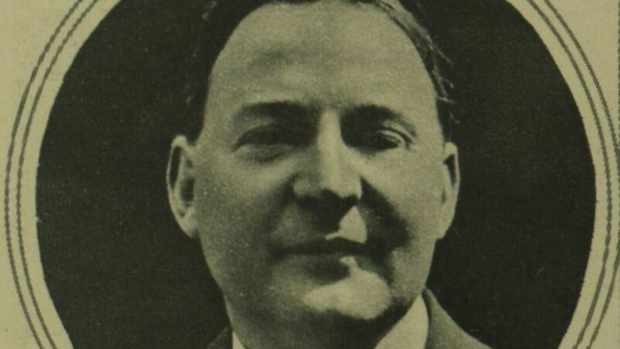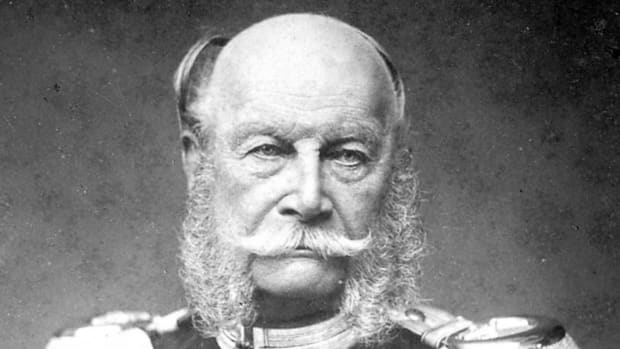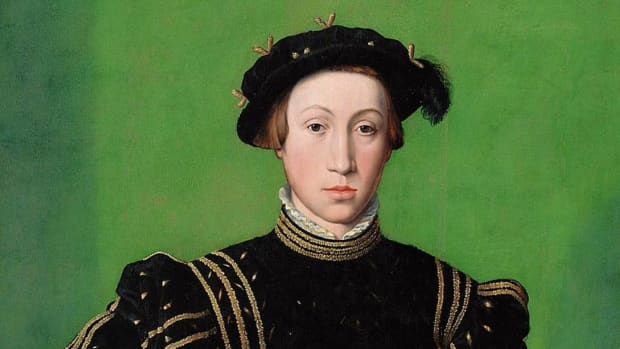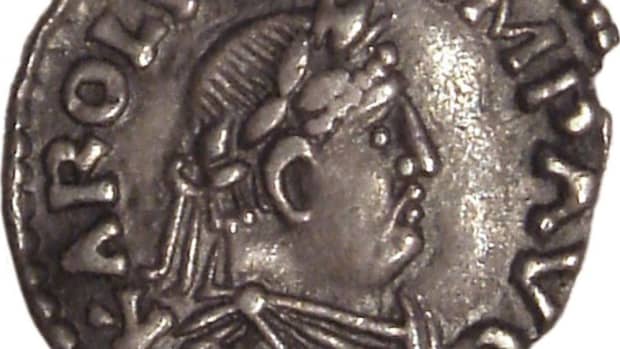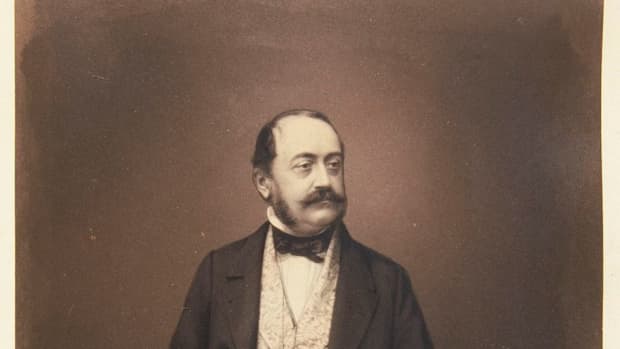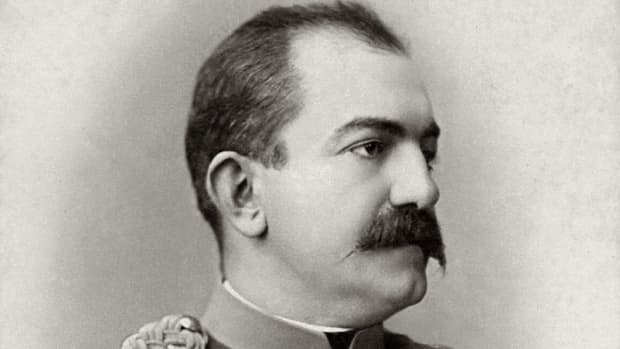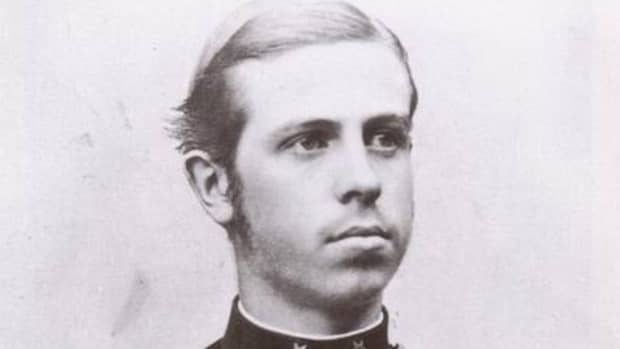Emperor Karl I of Austria: The Last House of Habsburg Ruler
Archduke Karl of Austria
Born on the 17th of August 1887 in Persenbeug Castle, Lower Austria, Archduke Karl Franz Joseph Ludwig Hubert Georg Otto Marie of Habsburg-Lorraine was the great-nephew of Emperor Franz Joseph I of Austria, who ruled between 1848 and 1916.
Karl had one younger brother named Maximilian, and both boys were raised in a home that was a fountain of scandal through their father, Archduke Otto Franz, but also a quiet religious refuge thanks to their mother, devout Catholic Maria Josepha of Saxony. Private tutors oversaw the boys' education at home before they attended the prestigious Schottengymnasium in Vienna.
Karl studied law and politics at Prague’s university, but as a royal, he was not permitted to sit exams. As with many sons of royal houses, Karl and Maximilian found themselves in the military. Karl was appointed as an officer in the Imperial Royal Army, and he was stationed in Bohemia and the now-lost country, Galicia.
Mayerling and Morganatic Marriage
The January 1889 Mayerling incident altered history forever. Crown Prince Rudolph, the only surviving son of Emperor Franz Joseph I and his wife Elisabeth of Bavaria, known as Sisi, carried out a murder-suicide whilst staying at his hunting lodge just outside Vienna. He killed his lover, Mary Vetsera, and then himself, to the horror of everyone. The line of succession passed to the emperor’s younger brother Karl Ludwig (1833-1896) and his descendants.
Karl Ludwig's son Archduke Franz Ferdinand entered into a morganatic marriage with Countess Sophie Chotek, so their children were not permitted in the line of succession, drawing Karl nearer to the throne.
Royal Marriage and World War 1
Emperor Franz Joseph took a keen interest in his great-nephew and the succession. He selected Karl’s bride for him. Karl and Princess Zita of Bourbon-Parma met as children, but they had not seen one another for over a decade. Fortunately, they got on well as adults and married on the 21st of October 1911 at her parent's summer house in Schwarzau.
The emperor gifted the couple Schloss Hetzendorf in 1912 when their first son Otto was born. Seven more children followed: Adelheid, Robert, Felix, Karl, Rudolf, Charlotte and Elisabeth.
The 28th June 1914 saw the assassination of Archduke Franz Ferdinand and his wife at the hands of Gavrilo Principe. The result was the First World War. Still a military man, Karl saw action across the Austrian Empire. With a sharp sense, he grew increasingly worried that the war could spell the end of the old order and the Habsburg rule.
No Abdication in Austria-Hungary
The 1917 Russian Revolution stunned him. As the end of the war drew closer, Karl was faced with an economy in trouble and the likelihood that Hungary, Bohemia, Galicia, Lodomeria, and other parts of his empire would formally seek their independence. The allies promoted this as a favourable option in the newly forged Europe.
By the autumn of 1918, the nations of the empire had declared that they were not willing to be ruled from Vienna. The armistice and the Imperial Royal Army’s dissolution severed the last ties with power that Karl possessed. He refused to abdicate but did not demand loyalty to the crown.
He signed a declaration on the 11th of November 1918 that stated that he would no longer participate in the government of Austria. On the 13th of November 1918, another document in the same vein was signed for Hungary. Neither proclamation used the word abdication because Karl and Zita believed in the divine status of monarchy.
Emperor Karl I of Warring Austria
Karl succeeded Franz Joseph I on the 21st of November, 1916. He bore the title His Imperial and Royal Apostolic Majesty, Emperor of Austria, Apostolic King of Hungary and Croatia, Slavonia and Dalmatia. Although he saw himself as a king with integrity and cared about his people, Karl was poorly prepared for the business of ruling.
He soon earned the epithet “Karl the Sudden” thanks to his habit of changing his mind. He took sole responsibility for the army, recalled parliament for the first time since war was declared, and although he wanted to make unpopular changes in Hungary, instead he was exposed as an inadequate ruler.
He sought an end to the alliance with Germany and sued for secret peace with France, which, when discovered, resulted in Austria-Hungary suffering a greater dependency on Germany. Karl was perceived as a puppet of Kaiser Wilhelm II, and Zita was considered to be a traitor by some, as her brother had acted as a middleman during the peace negotiations.
Habsburgs in Exile
The Habsburgs had no desire to surrender the empire to ministers, but they had no choice. They relocated from Vienna to rural Lower Austria and then, in late March 1919, to their exile in Switzerland with Archduke Maximilian and his family.
On the border between Austria and Switzerland, Karl revoked the 11th and 13th November 1918 declarations and claimed that he had been deposed unlawfully. The Austrian parliament's response was unequivocal. It created the Habsburg Law on the 3rd of April 1919, banning Karl and Zita from ever returning to Austria and stipulated that unless the other male Habsburgs renounced any right to rule, they too would be barred from the country.
In the following months, Karl made two unsuccessful attempts to reclaim the throne of Hungary. The post-war allies decided that Karl, Zita and their children would be less troublesome if they were further from their former empire. A home was found for them on the Portuguese island of Madeira. Archduke Maximilian, his wife and two children relocated to Bavaria and finally to France.
Karl I's Premature Death
Whilst living on Madeira, Karl caught either pneumonia or Spanish influenza, which then swept across Europe. He died on the 1st of April 1922, aged just 35, and he was laid to rest near Funchal, except for his heart, which was interred at the Muri Abbey in Switzerland. Shortly after his death, Zita gave birth to their last child, Elisabeth.
Under Zita’s influence, Karl became regarded as a martyr, and in 2004, he was controversially beautified by Pope John Paul II, who called him a “model Christian, husband, father and ruler.”
Zita lived until she was 96 years old, dying on the 14th of March 1989. She was buried on the 67th anniversary of Karl’s death. Her heart was placed with his in the Muri Abbey. Karl and Zita’s eldest son Otto, born when the empire thrived, passed away aged 98 on the 4th of July 2011. His son Karl von Habsburg, born in 1961, is an Austrian politician.
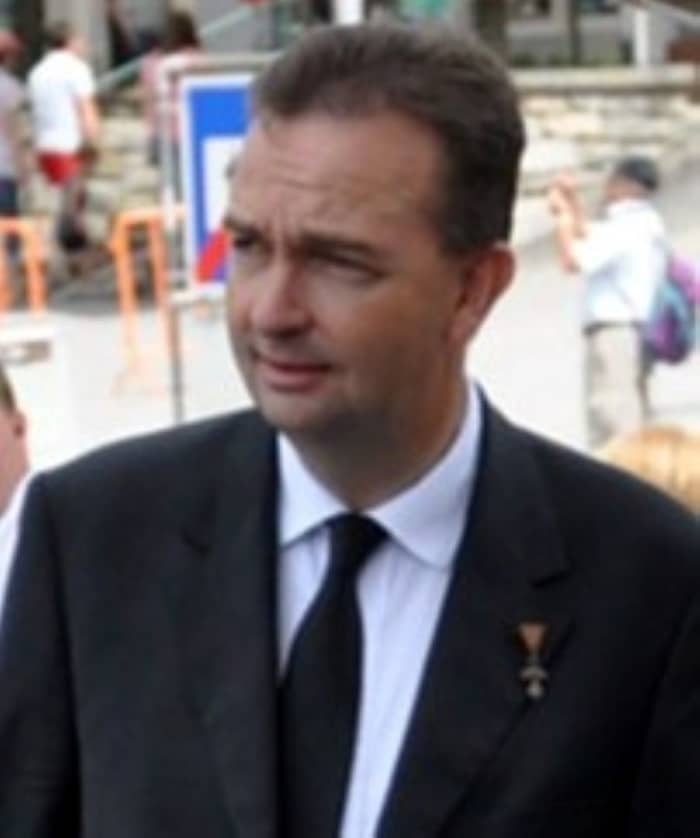
Karl von Habsburg is the current head of the House of Habsburg-Lorraine.
Wikipedia/Dr Janos Korom CC2.0
Sources
- Karl I | Die Welt der Habsburger
- Emperor Karl of Austria-Hungary and the end of the Habsburg Monarchy | European Royal History
- Karl I, Emperor of Austria | Unofficial Royalty
This content is accurate and true to the best of the author’s knowledge and is not meant to substitute for formal and individualized advice from a qualified professional.
© 2022 Joanne Hayle



